Overview
Itahari Namuna College (INC) is a Tribhuvan University–affiliated college in Itahari Sub-Metropolitan City, Sunsari. Established in 2070 BS (2013 AD), the college offers BCA, BBM, BBS, BSW, and BHM.
Overview
INC was founded by a team of experienced academicians to expand access to higher education in eastern Nepal. Located at the urban center of Itahari, the college runs multiple bachelor’s programs under Tribhuvan University (TU). Academic delivery combines classroom learning, practical work, field engagement, and transparent evaluation aligned with TU rules.
The college follows a student-support model with clear policies for assessment, internal examinations, and feedback. Quality assurance processes operate through committees such as IQAC, EMIS, SAT, and others adopted for academic governance and continuous improvement.
Quick Highlights
-
Establishment: 2070 BS (2013 AD)
-
Location: Itahari Sub-Metropolitan City, Sunsari
-
Affiliation: Tribhuvan University (TU)
-
Programs: BCA, BBM, BBS, BSW, BHM
-
Academic Focus: Application-oriented learning with fieldwork, labs, industry exposure, and project work
-
Governance & Quality: Committee-based academic management (e.g., IQAC, EMIS, SAT and other working groups)
-
Student Support: Academic advising, internal assessments, counseling, and placement guidance
-
Transport Coverage: Bhaunne (East), Tarahara (North), Prakashpur/Mahendranagar/Kalabanjar (North-West), Inaruwa (West), Duhabi–Aurabani (South)
Academic Programs Offered
INC offers five TU-affiliated undergraduate programs. All programs follow TU curricula, credit/load structures, and examination systems. Program availability in any given year depends on TU policy and institutional intake approvals.
BCA — Bachelor of Computer Application
BCA is a four-year program focused on software development and applied computing. Students learn programming fundamentals, algorithms, database systems, operating systems, networking, web and mobile development, and project management. Coursework is supported by practical assignments, lab work, mini-projects, and a capstone.
Skill areas
-
Programming (structured and object-oriented)
-
Data structures, databases, and SQL
-
Web technologies and APIs
-
Computer networks and system administration
-
Software engineering practices and teamwork
Typical roles after graduation
-
Software developer / web developer
-
QA/testing associate
-
Database or systems support
-
IT support in banks, enterprises, and NGOs/INGOs
-
Entry-level network or cloud support (with relevant certifications)
BBM — Bachelor of Business Management
BBM is a four-year management degree under TU that builds core managerial and analytical skills. The program covers accounting, finance, marketing, human resources, business communication, entrepreneurship, and research methods. Case discussion, presentations, projects, and internships help students link theory with practice.
Skill areas
-
Financial and managerial accounting basics
-
Marketing analysis and planning
-
HR fundamentals and organizational behavior
-
Business communication and presentation
-
Entrepreneurship and small business projects
Typical roles after graduation
-
Management trainee in banks and corporates
-
Sales/marketing associate
-
HR/admin officer
-
Operations support roles
-
Entrepreneurship/SME roles
BBS — Bachelor of Business Studies
BBS is a four-year degree focused on core business functions and policy frameworks applied in Nepal. The program builds a solid foundation in accounting, economics, finance, business law, and strategic management. Students practice report writing, data handling, and problem solving for entry-level roles in public and private sectors.
Skill areas
-
Accounting and auditing fundamentals
-
Business economics and statistics
-
Nepal business law, taxation basics
-
Organizational and strategic management
-
Report writing and office applications
Typical roles after graduation
-
Accounts assistant / junior accountant
-
Administrative officer
-
Banking support roles
-
Assistant in audit firms
-
Entry-level roles in SMEs and local enterprises
BSW — Bachelor of Social Work
BSW runs under TU guidelines with strong fieldwork requirements. Students study social work theory, social policy, psychology, community organization, and research. Field placements and community outreach help learners connect classroom knowledge with grassroots practice.
Skill areas
-
Community needs assessment and planning
-
Casework, group work, and counseling basics
-
Project documentation and reporting
-
Social research methods
-
Communication with local bodies, NGOs/INGOs, and stakeholders
Typical roles after graduation
-
Program assistant in NGOs/INGOs
-
Community mobilizer and outreach worker
-
Research assistant in social projects
-
School/community counselor (as per policy)
-
Support roles in local government projects
BHM — Bachelor of Hotel Management
BHM integrates classroom learning with practical training in hospitality. Students study food production, bakery, food and beverage service, front office, housekeeping, hospitality sales, and cost control. Practical exposure is delivered through training kitchens, bakery/patisserie units, a mock restaurant, and housekeeping labs. Industrial visits and internships connect students with hotels and resorts.
Skill areas
-
Culinary foundations and kitchen operations
-
Restaurant service and beverage handling
-
Front office operations and customer handling
-
Housekeeping methods, hygiene, and safety
-
Costing, inventory, and basic hospitality accounts
Typical roles after graduation
-
Kitchen trainee / commis
-
F&B service associate / barista
-
Front office assistant
-
Housekeeping attendant / supervisor trainee
-
Roles in cruise lines, resorts, airlines (as per openings)
Admission Process
Admission is based on TU eligibility rules and college intake capacity. Applicants should follow the annual notices for forms, deadlines, and entrance requirements.
General eligibility
-
Completion of 10+2 or equivalent from a recognized board
-
Minimum academic standing as per TU policy for each program
-
Equivalence certification where applicable
Entrance and selection
-
Management programs may require the TU-prescribed test (e.g., CMAT for relevant programs) and a college-level screening process
-
BCA and BHM follow TU entrance tests and guidelines as applicable
-
Final selection typically considers entrance score, past academics, and a short interview or counseling round
Application steps
-
Collect or download the application form during the admission window
-
Submit transcripts, character certificate, photographs, and any additional documents listed in the notice
-
Sit for the entrance test if required
-
Attend counseling and complete fee/payment formalities within the deadline
Official admission notices specify dates, required documents, and contact points. Prospective students should always rely on the latest notice issued by the college in line with TU directives.
Teaching Faculty and Learning Methodology
INC engages qualified faculty in each discipline. Teaching methods combine lectures, guided practice, group tasks, presentations, lab work, field visits, and case discussions. Internal assessments, practical exams, and project reviews follow TU evaluation norms.
Students receive academic advising and mentoring. Departments schedule additional tutorials for core subjects when needed. Guest sessions from industry and social sector practitioners support career awareness and skill orientation.
Infrastructure and Learning Facilities
The campus environment supports focused study with dedicated spaces for each program.
-
Computer Labs: BCA and other students access labs for programming, databases, and project work.
-
Hospitality Labs: Training kitchens, bakery/patisserie units, a mock restaurant, and housekeeping practice rooms for BHM.
-
Library & e-Resources: Texts aligned to TU syllabi, reference materials, journals, and digital reading stations.
-
Classrooms: Multimedia-enabled rooms for presentations and case work.
-
Quality Systems: Academic and administrative tracking through committees such as IQAC, EMIS, SAT, and other working groups.
-
Transport: College transportation covers Bhaunne (East), Tarahara (North), Prakashpur/Mahendranagar/Kalabanjar (North-West), Inaruwa (West), and Duhabi–Aurabani (South).
-
Student Support: Counseling, placement guidance, and notice system for internships, training, and events.
Student Life and Campus Experience
Student life at INC centers on coursework, practical learning, and community engagement. Clubs and department units run presentations, coding practice (for BCA), management talks (for BBM/BBS), outreach camps (for BSW), and food festivals or service simulations (for BHM). The campus calendar includes orientations, industry talks, field visits, and assessment briefings.
Students can approach program coordinators and advisors for academic planning, re-assessment guidance, and documentation support. The college encourages a respectful learning environment where punctuality, attendance, and academic honesty are expected.
Extracurricular Activities (ECA)
Beyond the classroom, the college facilitates activities that build teamwork and confidence.
-
Academic clubs: Coding circles, research groups, and case/quiz forums
-
Social outreach: Clean-up drives, health awareness, and community sessions coordinated with local bodies and NGOs
-
Sports and culture: Inter-class sports events, art, poetry, and cultural days
-
Industry exposure: Talks, hotel/site visits, and short trainings scheduled by departments
Participation enhances communication skills, time management, and professional etiquette valuable in the workplace.
Scholarships and Financial Support
The college offers scholarships as per institutional policy and TU norms. Categories generally include:
-
Merit-based: Entrance rank or semester performance
-
Need-based: Consideration of family income documents as per policy
-
Reserved categories (where applicable): As per national guidelines and institutional rules
Scholarship numbers, amounts, and renewal conditions are published in admission and semester notices. Applicants should read the criteria carefully, submit required documents on time, and maintain the academic standing specified for continuation.
Achievements and Institutional Milestones
-
Program Growth: Expansion from initial offerings to five TU programs (BCA, BBM, BBS, BSW, BHM) since 2070 BS
-
Quality Assurance: Operation of internal committees such as IQAC, EMIS, SAT, and other task groups for process improvement
-
Industry Linkages: Regular coordination for internships, field placements, and exposure visits with local enterprises, hotels, and social sector organizations
-
Community Role: Engagement through student projects, outreach events, and collaboration with local stakeholders in Itahari and surrounding areas
The college tracks outcomes through internal reviews, feedback cycles, and alumni interaction. Annual plans and notices communicate incremental improvements in teaching–learning support.
Why Choose This Institution?
-
TU Affiliation and Recognized Programs: Degrees under Tribhuvan University with clear academic rules and examination systems
-
Program Range Across Disciplines: Computing (BCA), Management (BBM, BBS), Social Work (BSW), and Hospitality (BHM) in one campus
-
Practical Learning: Labs, fieldwork, presentations, projects, and internships aligned with course requirements
-
Student Support: Advising, counseling, internal assessments, and orientation for career planning
-
Location and Access: Central Itahari location with defined transport routes across nearby towns
-
Governance and Clarity: Committee-based quality assurance, published notices, and transparent procedures
Prospective students seeking structured undergraduate study with hands-on components will find clear pathways here—whether in software development, business, community services, or hospitality.
Conclusion
Itahari Namuna College serves learners in eastern Nepal through TU-affiliated programs that link classroom learning with practical exposure. With five established bachelor’s programs, quality mechanisms, defined admission steps, scholarship categories, and a supportive campus environment, the college provides a clear route from higher secondary education to undergraduate study and entry-level employment.
For the latest admission windows, entrance requirements, scholarship updates, and semester calendars, applicants should refer to official college notices issued each session. Accurate, current information is always shared through the admission office and verified communication channels.
Contact Itahari Namuna College's administrative office for detailed information on the course, admissions, location, fees, scholarships, facilities, counseling, or eligibility.
Contact Details
Itahari Namuna College
Email Address: itaharinamunacollege@gmail.com
Phone Number: +977-25-588202, +977-25-586701, +977-25-585701, +977-9852059937
Website: https://namunacollege.edu.np
Location: Itahari, Sunsari, Nepal


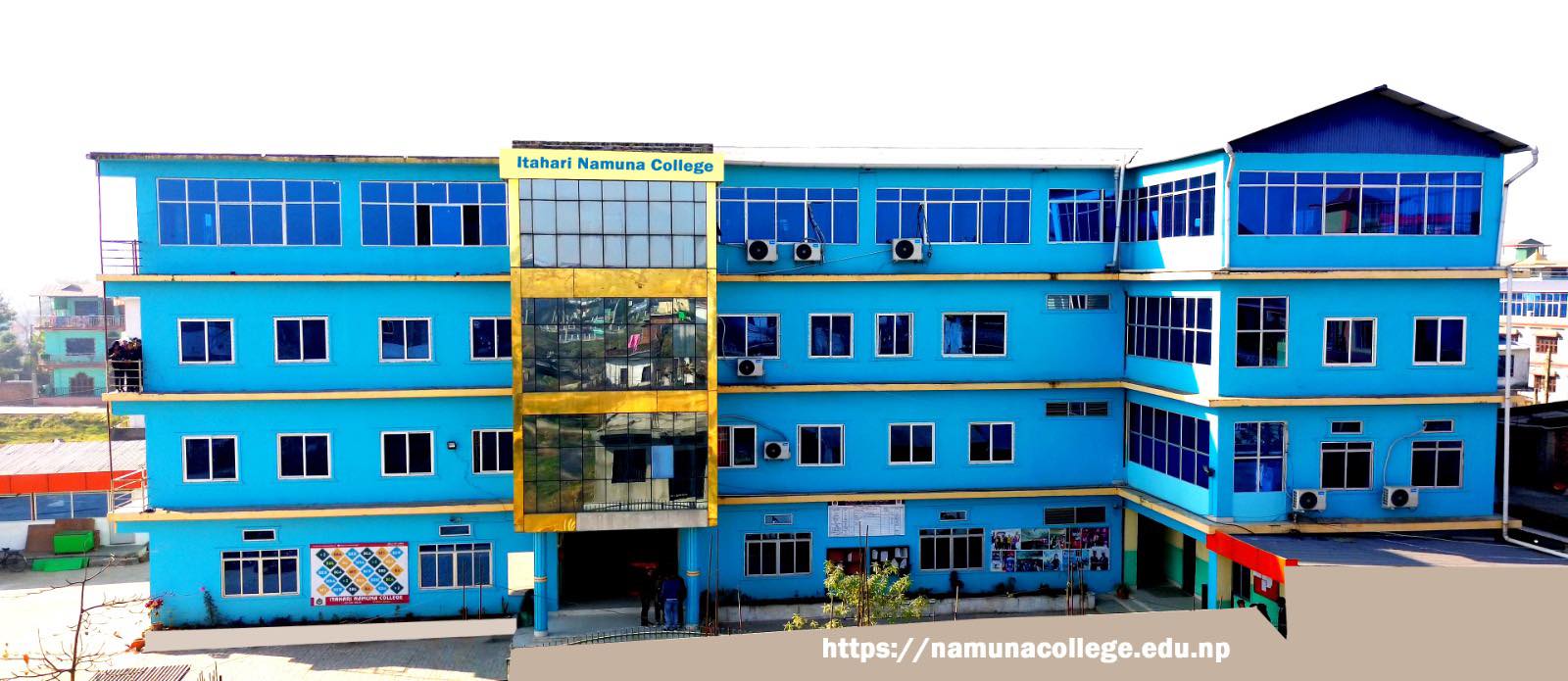

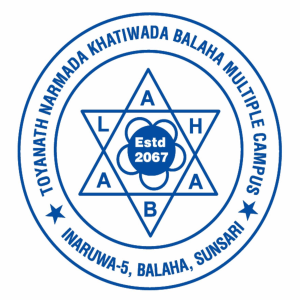
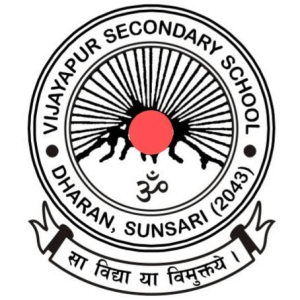
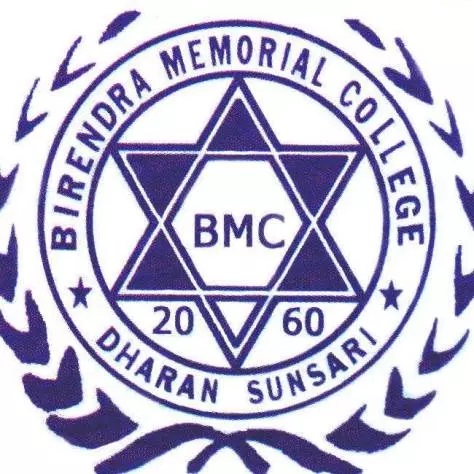
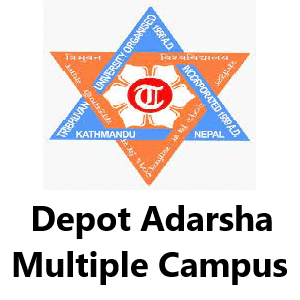
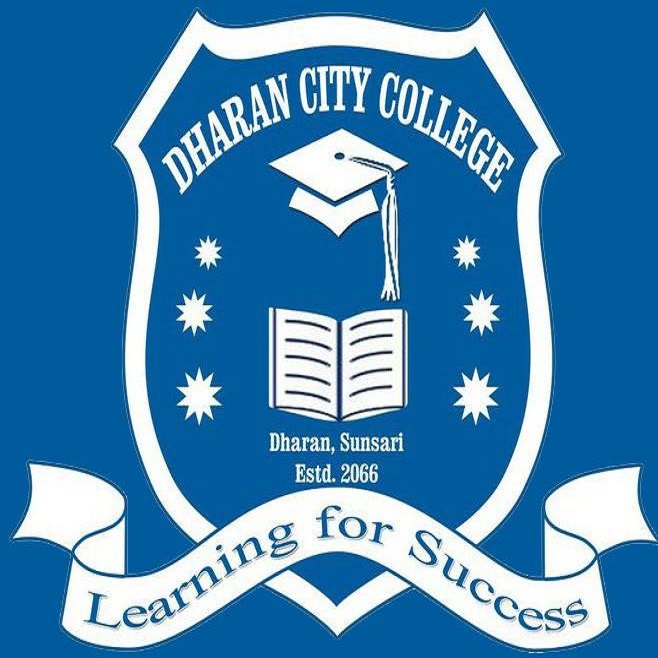
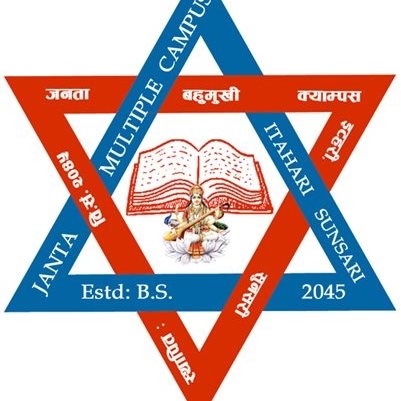










You need to login to comment.